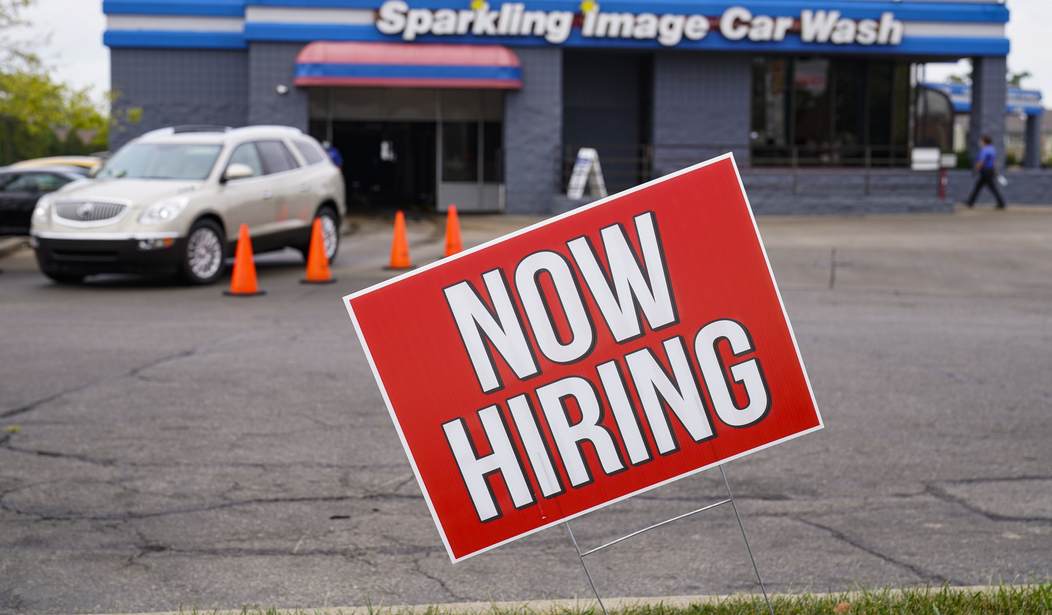An astonishing 4.4 million people resigned from their jobs in September in what experts call the “Great Resignation.” We’re not talking layoffs or firings here — these are people who left their jobs for various reasons.
Many people have left their jobs for better opportunities. Remote work, higher pay, and benefits can lead people to make a change. (I can vouch for this, as I recently left a job I loved for a once-in-a-lifetime opportunity here at PJ Media.) The increase in job openings as some states have finally reopened after last year’s pandemic closures has led many employees to leave lower-paying jobs for positions that offer more money and better options.
This wave of resignations that we’re seeing demonstrates how competitive the U.S. labor market has become. There are 10 job openings for every seven people seeking work, and higher pay is luring many people to make a change.
The Wall Street Journal reports that “Businesses are ramping up pay to attract workers in a competitive market. Private-sector wages and salaries grew at a fast pace in the third quarter from a year earlier across regions and were particularly strong in the South.”
The states where the Great Resignation is hitting the hardest include Montana, Nevada, Colorado, Utah, and even Hawaii. The entertainment, arts, and recreation industries in those states are responsible for the vast majority of those employees who quit.
Montana has the nation’s biggest share of employment in the arts, entertainment and recreation sector, which includes jobs at museums, theaters and amusement parks. The state logged the second fastest increase in quits in the U.S. in September, behind Hawaii, when arts, entertainment and recreation experienced a sharp 82% rise in quits from a month earlier. Worker resignations also grew rapidly in other Western states with a relative abundance of employees in the arts, including Utah, Colorado and Nevada.
In the Northeast, job openings have increased more rapidly than anywhere in the country, but these better employment opportunities have also led to a dramatic rise in people leaving their jobs to pursue other career options.
Education has seen one of the largest quit rates nationwide. Many teachers are quitting or retiring early rather than deal with the ridiculous bureaucracy that COVID has brought to our schools. Other teachers have left out of their fear of the virus — fear that no doubt has been stoked by the teachers’ unions and others on the left. Both the largest concentrations of education jobs and the highest percentages of quits related to education are in the Northeast.
Here’s the thing: these job changes don’t signify a robust, booming economy. “The great resignation as we discussed so far is not just about having a lot of job openings out there,” Sinem Buber, economist at ZipRecruiter, told the WSJ. In places like Hawaii, where COVID is still ravaging the population, job openings aren’t as plentiful. Other workers have left the workforce altogether, whether temporarily hoping to ride out the pandemic or trying to do something completely new.
The Great Resignation is yet another sign that we’re in odd economic times that don’t look to get significantly better anytime soon.










Join the conversation as a VIP Member